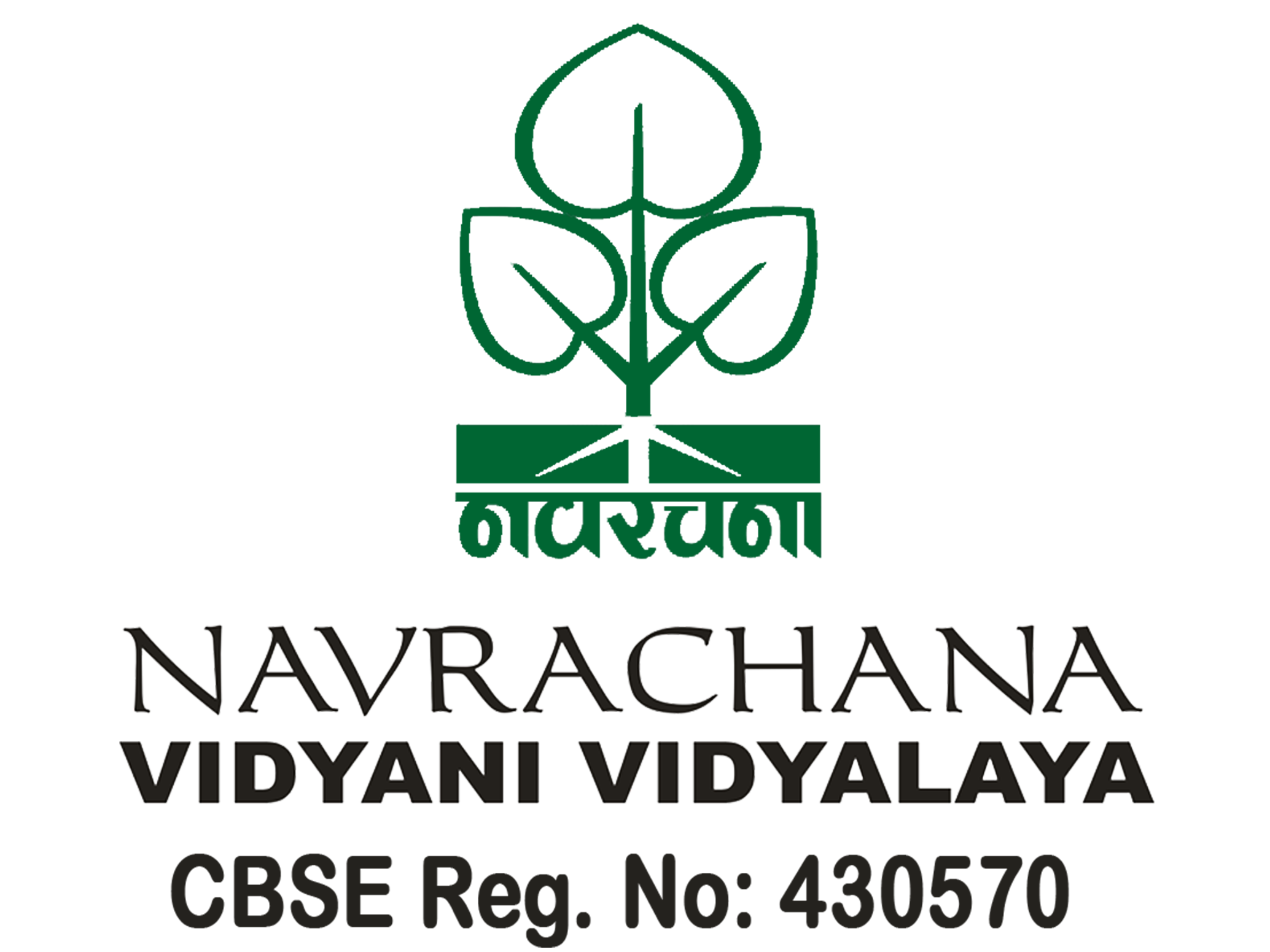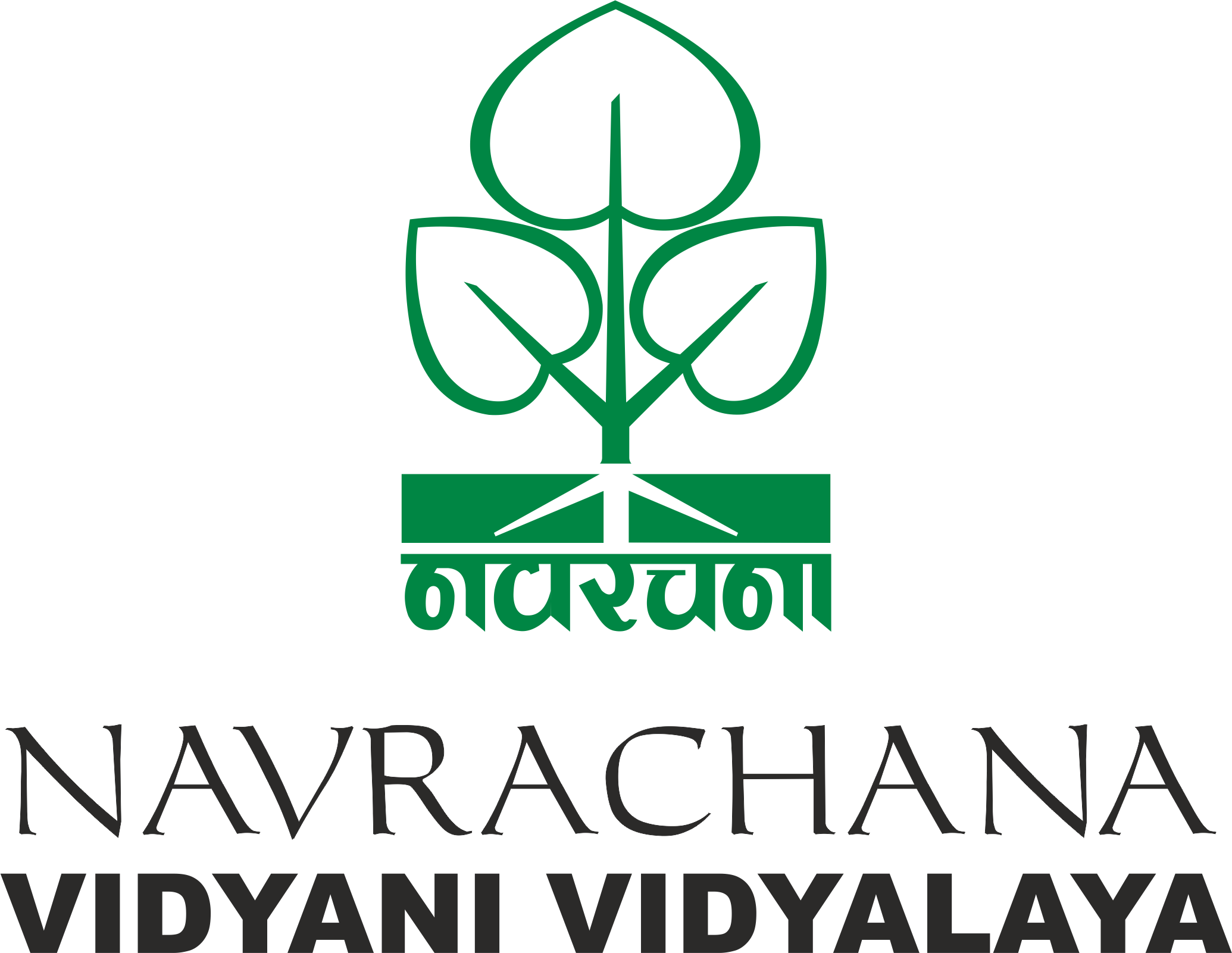Co-scholastic Activities

Co-scholastic Activities
Correlation of Dance, Art and Music with Mathematics
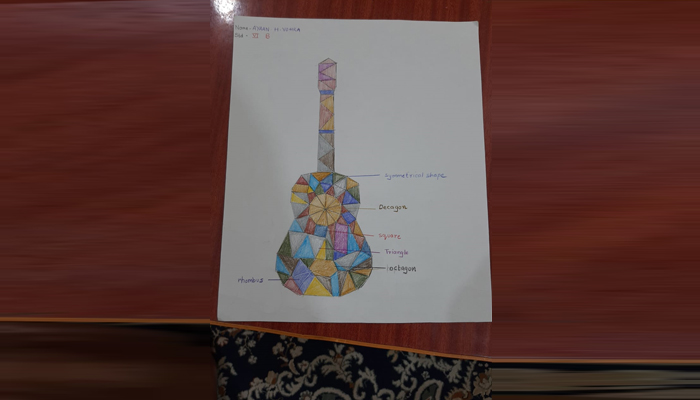
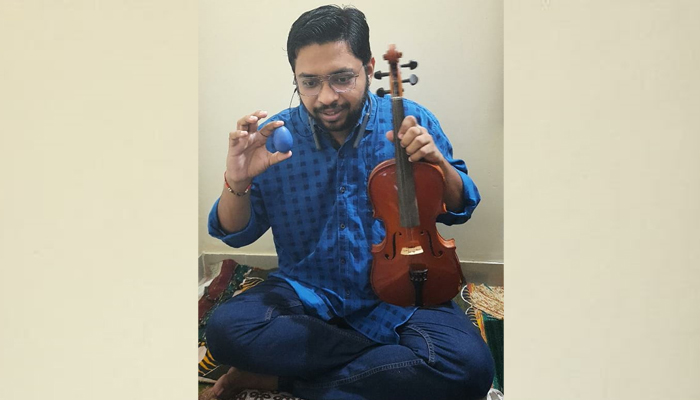
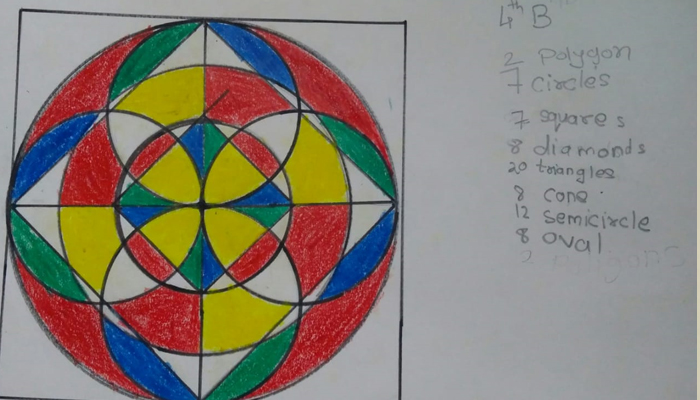
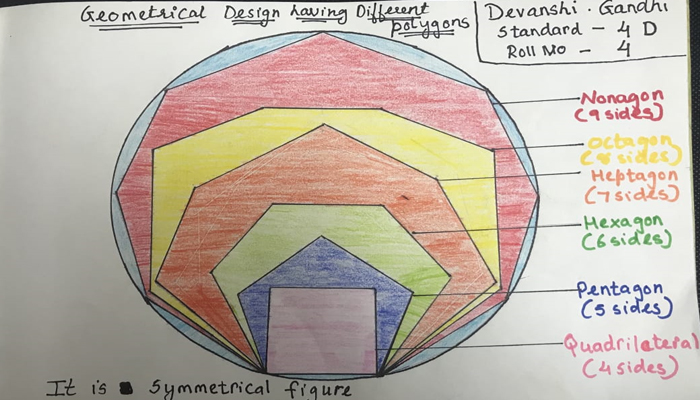
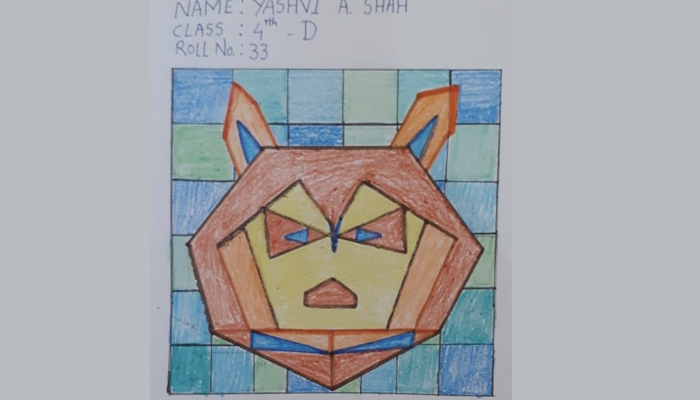
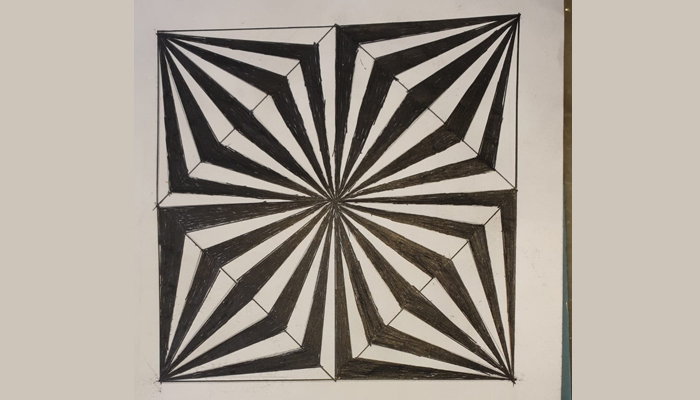
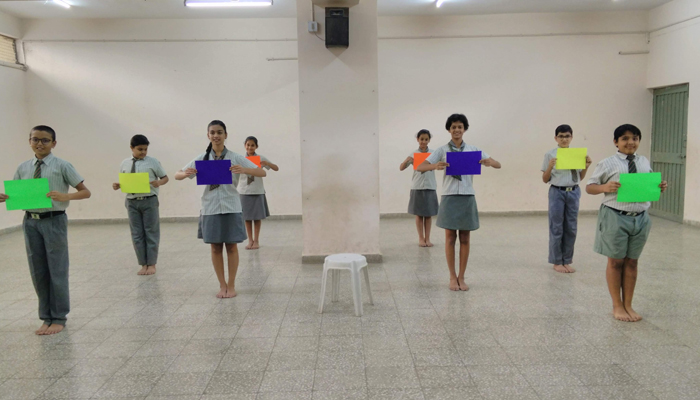
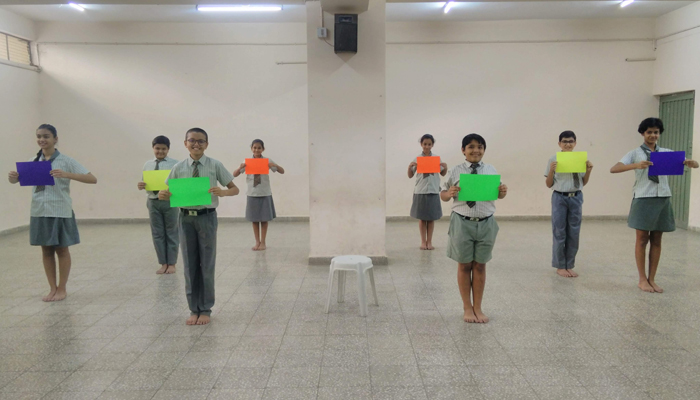
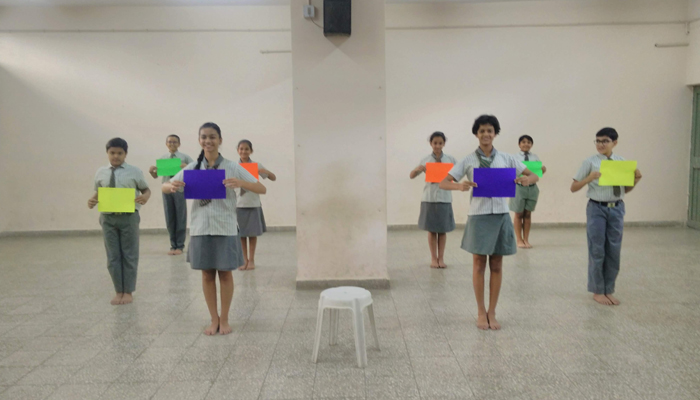
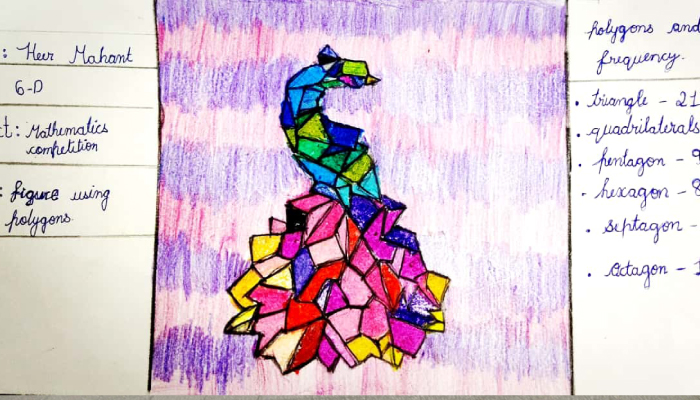
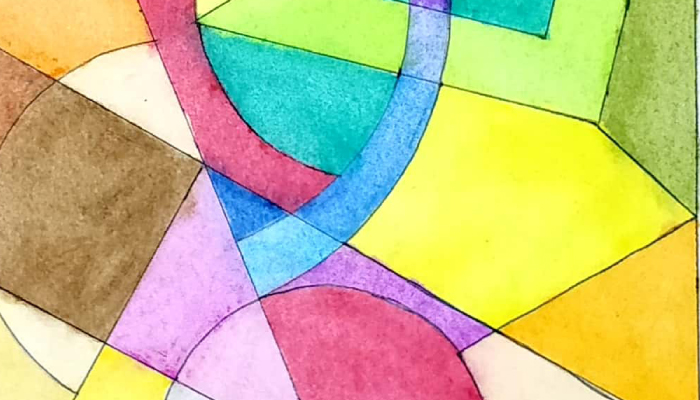
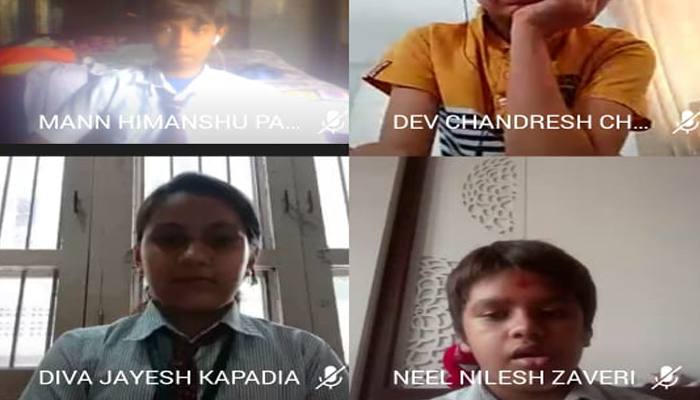
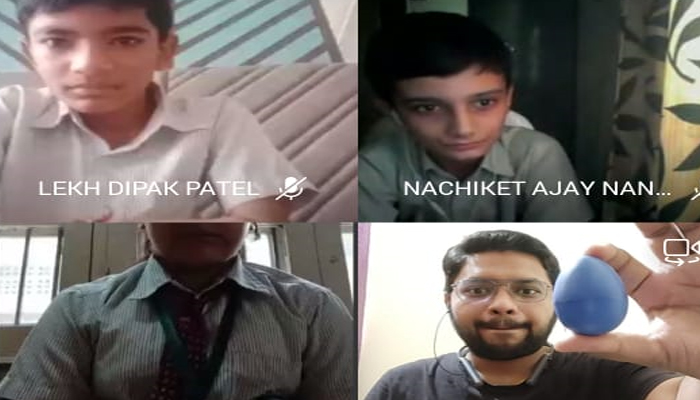
Art-Integrated Music Integrated and Dance-Integrated Learning, promote reflection, critical thinking, creativity, initiation, self-direction and other 21st Century Skills. All this is done in Vidyani to make students 21st century ready citizens, by empowering them with the competencies to understand, analyse, evaluate, interpret and innovate various real life situations that they require to face in the world outside the classrooms or an environment beyond their schools and homes.
As a part of the thrust on experiential learning, art and performing art-integrated with mathematics education is embedded in classroom transactions not only for creating joyful classrooms, but also for imbibing the Indian ethos through integration of Indian art and culture in the teaching and learning process particularly with the an abstract subject like Mathematics. This art-integrated approach strengthens the linkages between education and culture.
Dance can significantly enhance, deepen and increase learning in all of the essential learning areas, especially mathematics. It extends the students’ mathematical investigations through the kinaesthetic activities in dance.
They also learn and articulate the core concept of Mathematics like shape-making, symmetry, asymmetry, reflections, rotations, transformations and directions. Dance uses algebra patterning, group formations, tessellations, repetition, sequences and variations and apply it in daily life.
Our dance teacher incorporates various concepts of Mathematics through different group formation.
Music teachers acquaint students classification of instruments like
- Wind instruments
- String instruments
- Percussion instruments
It is well recognised that music can help to develop the skills, attitudes and attributes that can support learning in other curriculum subjects. This includes listening skills, the ability to concentrate, creativity, intuitions, aesthetic sensitivity, and perseverance, the ability to work in a group, self-confidence and sensitivity towards others. Music helps children learn across subjects and can help to build social and cultural values, too.
Music involves creating patterns of sound, whereas Mathematics is the study of patterns. Research has found out that popular pieces of music have definite mathematical structures that are less evident in others. These patterns appeal to our innate desire for mathematical rhythm and patterns.
Art integration provides an engaging and effective way to achieve standards in both math/geometry and visual arts. Students developed math skills of identifying, classifying, and describing the shape, size, colour, and location of geometric figures. They also developed spatial relationships. Art integration helps in dealing with core concepts of mathematics like shapes, patterns, tessellations, symmetry, measurement skills and analytical skills.
Co-scholastic Activities
Navrachana Vidyani Vidyalaya takes great pride in honing the overall development in each child through his scholastic capability and through co-scholastic activities. The co-scholastic sphere covers a wider ambit than that of curricular excellence and introduces students to cultivate their practical, creative, value-based and physical education.
The aim here is to ensure that no child, however unlike from universal expectations and standards, feels isolated and inadequate. Each child is prepared to feel confident of his or her abilities, respected and understood for what he or she is and therefore feels nourished and secure. This ensures positive cognitive learning and growth while catering to the differences in aptitudes and weaknesses.
The co-scholastic programme at Vidyani consists of a Project-based curriculum that focuses on enhancing the life skills (functional literacy, numeracy, community skills, value-based learning and self-development) of children. It is incorporated in the general stream of learning through hands-on-activities, research and experimentation.
In order to reinforce the knowledge imparted in the curriculum, various activities and projects are conducted. As an enhanced learning process, such activities and projects have resulted in the development of social skills, intellectual skills, oratory skills, moral values, personality traits and confidence amongst students.
The 2020 academic session has seen a great upheaval in this arena, but our teachers have refused to buckle under the pandemic attack and have pursued this angle from another perspective. Instructions were provided to the students about the assembling of the required materials and under the guidance and supervision of teachers, projects, posters, models etc. were made by students.
Significant projects demonstrated virtually by students in various subjects
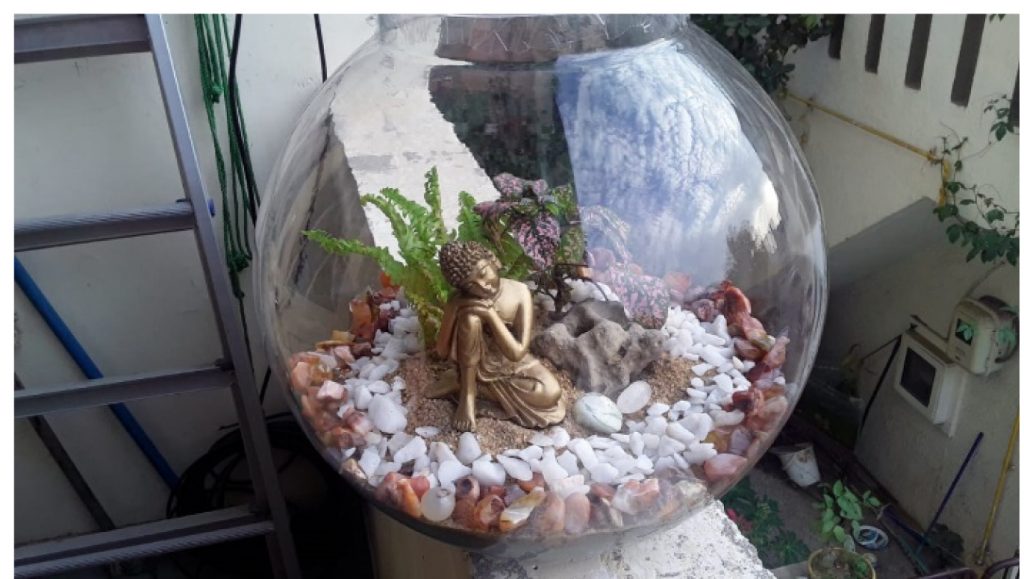
I. Instructions for a terrarium construction was provided to Std VII students to show how replenishment of nutrients take place in nature; an activity that is so sync with current times.
Learning acquired :
Students of Std VII identified the mode of nutrition in plants and appreciated how a balance of nutrients is maintained by plants even in dire situations.
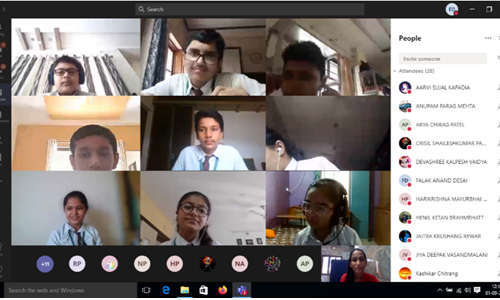
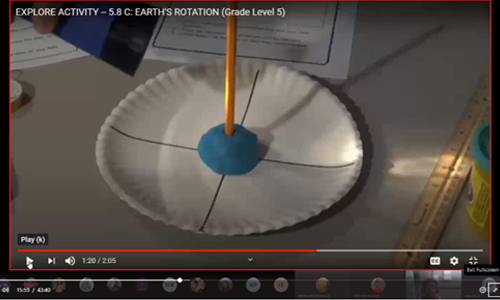
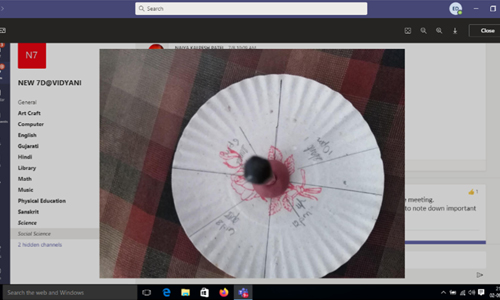
II. A model on Sun Dial was prepared in class, where students of Std VII made a Sun Dial and noted timings at different intervals of the day. It was an interesting activity for them and the objective was completed as they learnt how time was seen and read in the ancient times. This activity also proved to students how India was advanced in the field of Science and Astronomy since the days of Bhaskaracharya…
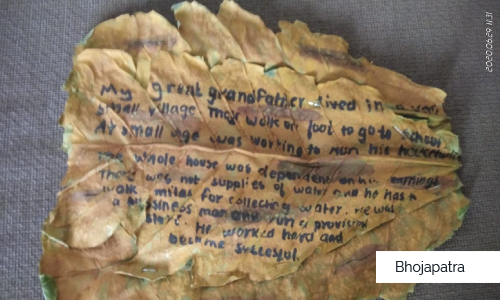
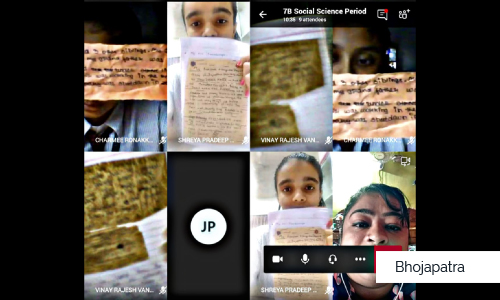
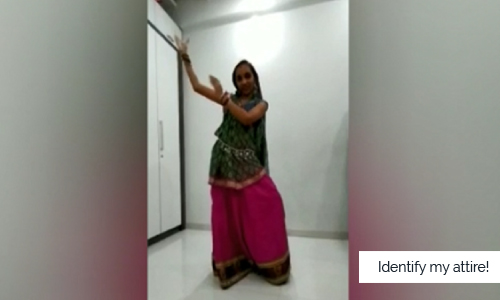
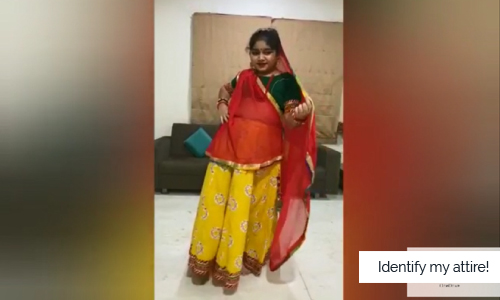

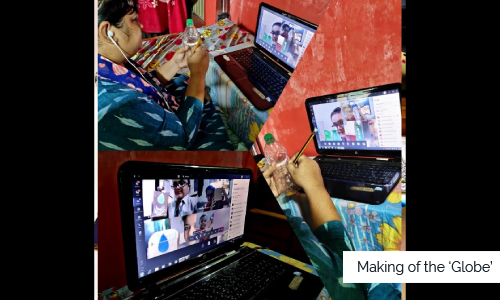
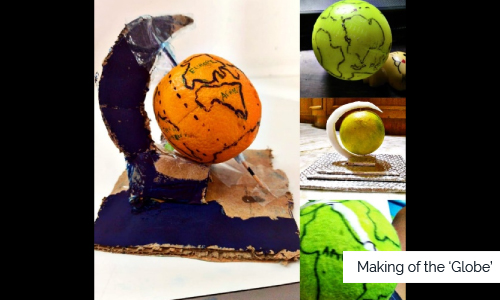
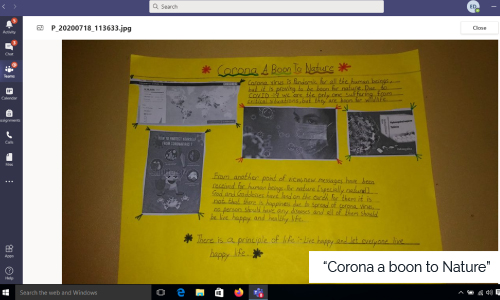
III. Social Science covers a vast area; at times students do not find it interesting to study it either. Hence, themes such as Culture, Time, Continuity and Change, People, Places and Environment, Individual Development and Identity, Civic ideals and practices are selected through which model-making (clay idols of Ganpati), making of ‘Bhojapatras’ (ancient practice of writing on leaves), globe-making (using oranges or potatoes), dressing up in regional costumes to identity the region of origin (to share of the importance of tradition, culture, region and atmosphere) etc. are taken up to bring awareness to students about things that they can easily associate themselves with.

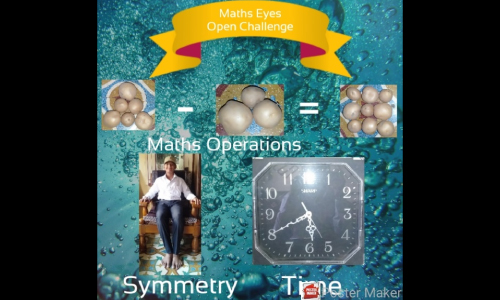
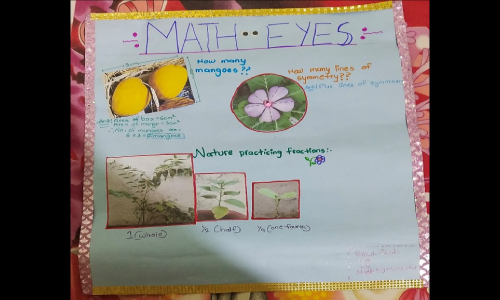
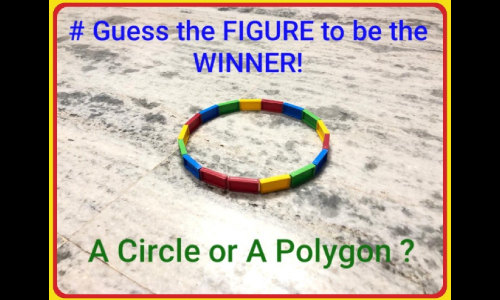
IV. Math is not just the subject : it’s the way of thinking. It helps develop mental faculties like no other subject. In order to develop the critical, analytical, reasoning and observational skills, simple activities such as types of symmetry such as Rotational and Mirror Symmetry etc. are explained through illustrations. Students are taught to explore the examples of Symmetry in Nature and real-life objects and collect the photographs or make charts of the same. ‘Learning by doing’ is the basic fundamental exhibited here. The major aim is to make them aware about day to day happenings and sensitize them towards the people around them using the mathematical skills.
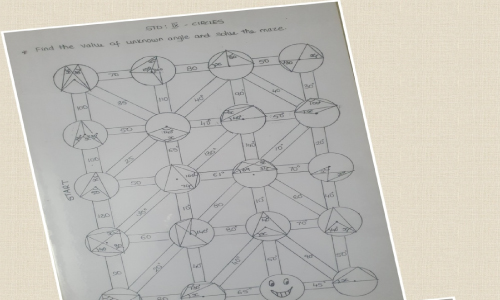
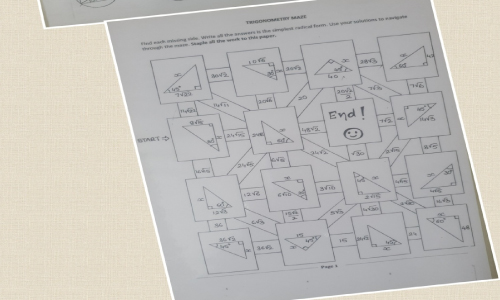
V. The concept of Trigonometry (Std X) was revised by making a trigonometry maze based on various trigonometric ratios and angles. Proof of Basic Proportionality Theorem was derived through paper cutting-pasting activities.


VI. Poster making Competition during Independence Day (Std IX-Sanskrit):
The best part of the Poster making event was that minimal time was provided to the students and many of them came up with novel ideas to display the patriotic colours. Fellow classmates cheered the exhibits shown during the Class Teacher’s period which not only boosted the confidence of students but also inspired others to sing impromptu patriotic numbers during the activity. It was interesting and added a spirit of competition along with fun!

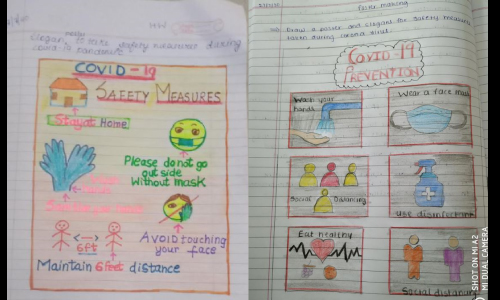
VII. A Poster and Slogan making assignment was given to students on the ‘Safety Measures taken during Corona Pandemic’ (Std X- English) after explanation of rules and format. Students’ response was immense and almost all agreed that it was an eye opener as they actually bring further awareness to their immediate and extended family members by putting the tips into actual practice!
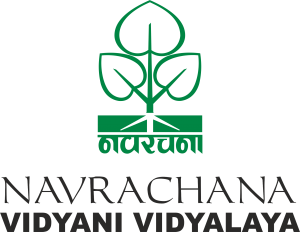
Navrachana Vidyani Vidyalaya School
Address : Near Sama Sports Complex, Sama, Vadodara 390024 Gujarat ( INDIA )
Tel. : 0265-2792285, 2780539
Email : vidyani@navrachana.edu.in
Website : www.vidyani.navrachana.in
